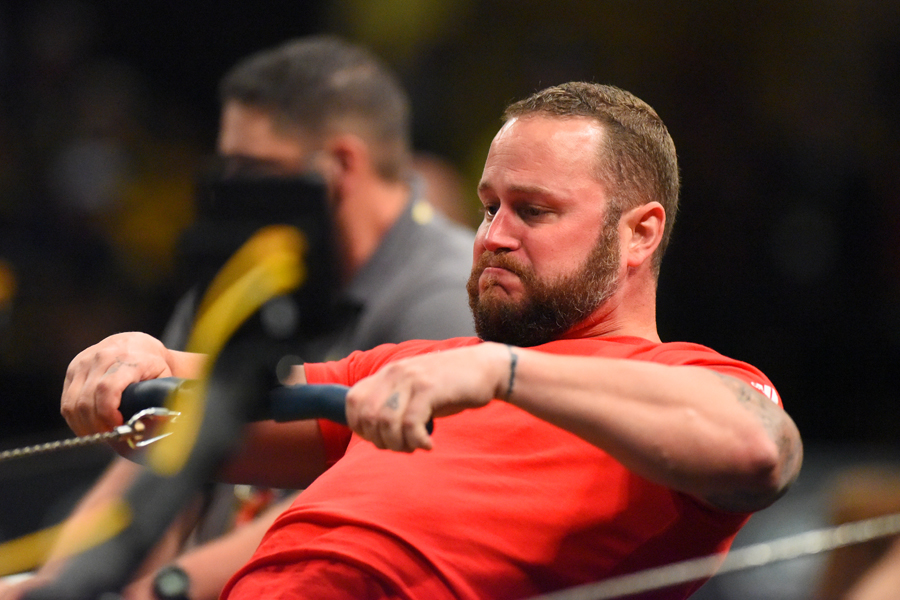Invictus Games launches sports psychology study
By Lookout on Jan 22, 2017 with Comments 0

Team Canada captain Bruno Guevremont of Victoria competes in the 2016 Invictus Games rowing competition at the ESPN Wide World of Sports Complex in Walt Disney World in Orlando, Fla. Photo courtesy Walt Disney World Resort
Peter Mallett, Staff Writer ~
A study investigating the role of adaptive sport in the rehabilitation of current and former military has been launched by researchers at Dalhousie University ahead of the Invictus Games Toronto 2017.
Invictus Games officials announced their involvement in the research during the 7th Annual Military and Veteran Research Forum held in Vancouver in November.
They will fund the sports psychology study that will involve approximately 200 competitors and 30 family members.
Established by Prince Harry in 2014, the Invictus Games are the only international adaptive sporting event for wounded, ill and injured active duty and veteran service members. The Toronto edition of the Games will be the first time Canada has hosted the event. It will bring together 550 competitors from 17 nations competing in 12 sports.
The study, conducted by Dalhousie University and the Canadian Institute for Military and Veteran Health Research (CIMVHR), will survey 200 Canadian and international competitors and ask a series of questions about their experiences in preparing for the games, during competition, and the long-term impact of the Games.
Researchers will then look for common trends in their responses in an effort to improve both policy and program delivery for current and former military service members with illnesses and injuries.
Lead researcher Celina Shirazipour said the study will provide unparalleled opportunity to fill research gaps and allow for the exploration of sport participation and its effects on the health and well-being of military personnel and their families for the short and long term.
“We know sport has the potential to be beneficial, but we want to know what aspects of the Games positively impact athletes the most,” said Shirazipour. “In the end, the results will help us promote more enhanced program development for ill and injured service members and veterans, as well as their families.”
She noted there have been studies done in the past about the benefits of sports and healing, but very little as to how it impacts injured veterans and military personnel and their families in their recovery, in the short and long term.
“There have been very few researchers who have had the benefit of interviewing such a diverse number of service members and veterans from around the world, taking part in one sporting event,” she said.
Shirazipour and her supervisor, Dr. Alice Aiken, have already begun to tackle one portion of their study, which will survey more than 250 randomly selected members of the Canadian public to find out what impact the Games will have on them. She said the goal of this portion of the study is to gauge public awareness both ahead of the Games and after they have wrapped up, in an effort to better understand public perceptions of injured currently serving military and veterans.
Shirazipour said preliminary results of the study will be announced at next year’s CIMVHR forum, which will be held in Toronto in the days leading up to the Invictus Games Opening Ceremony at the Air Canada Centre.
Filed Under: Top Stories
About the Author:





